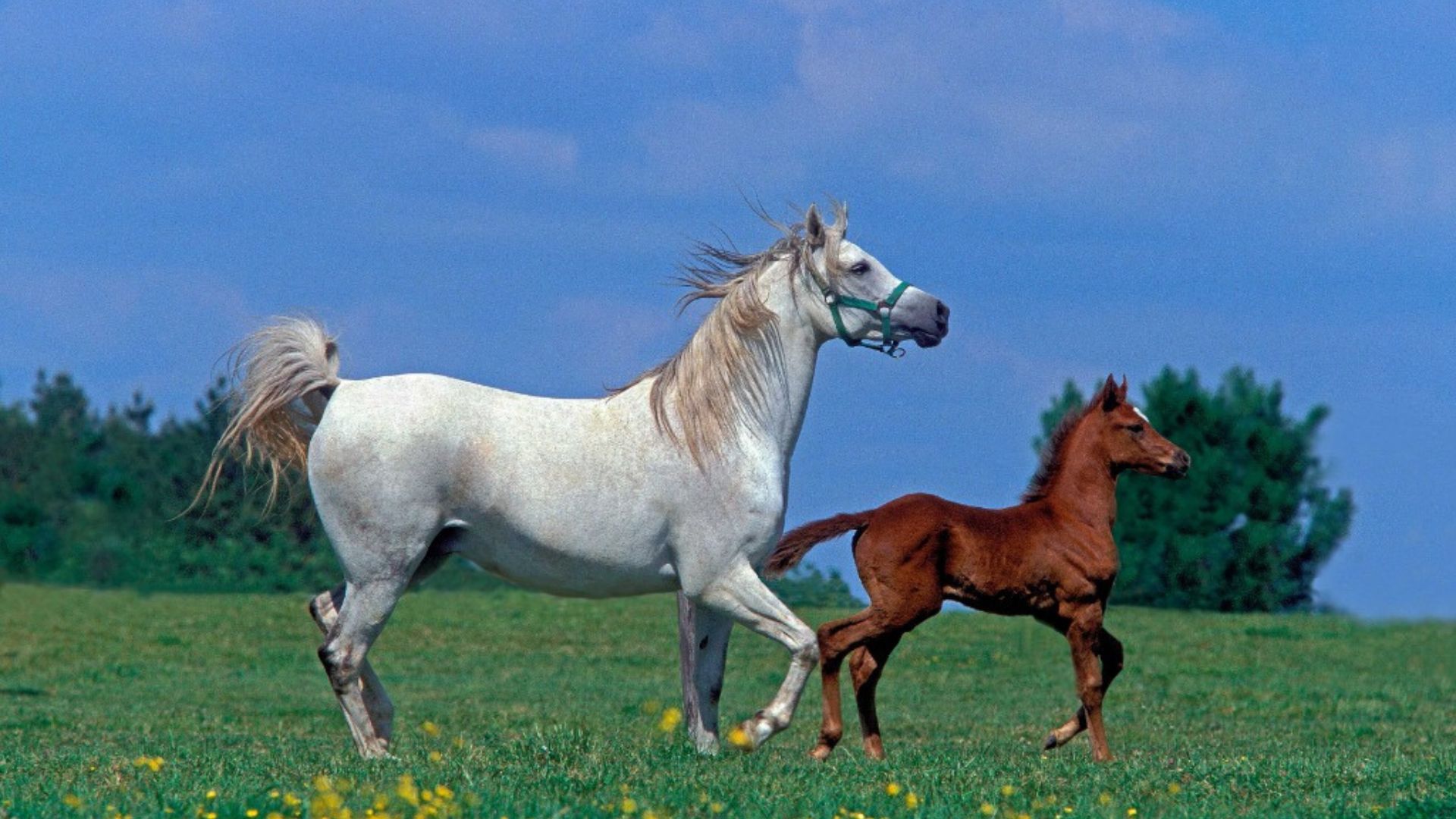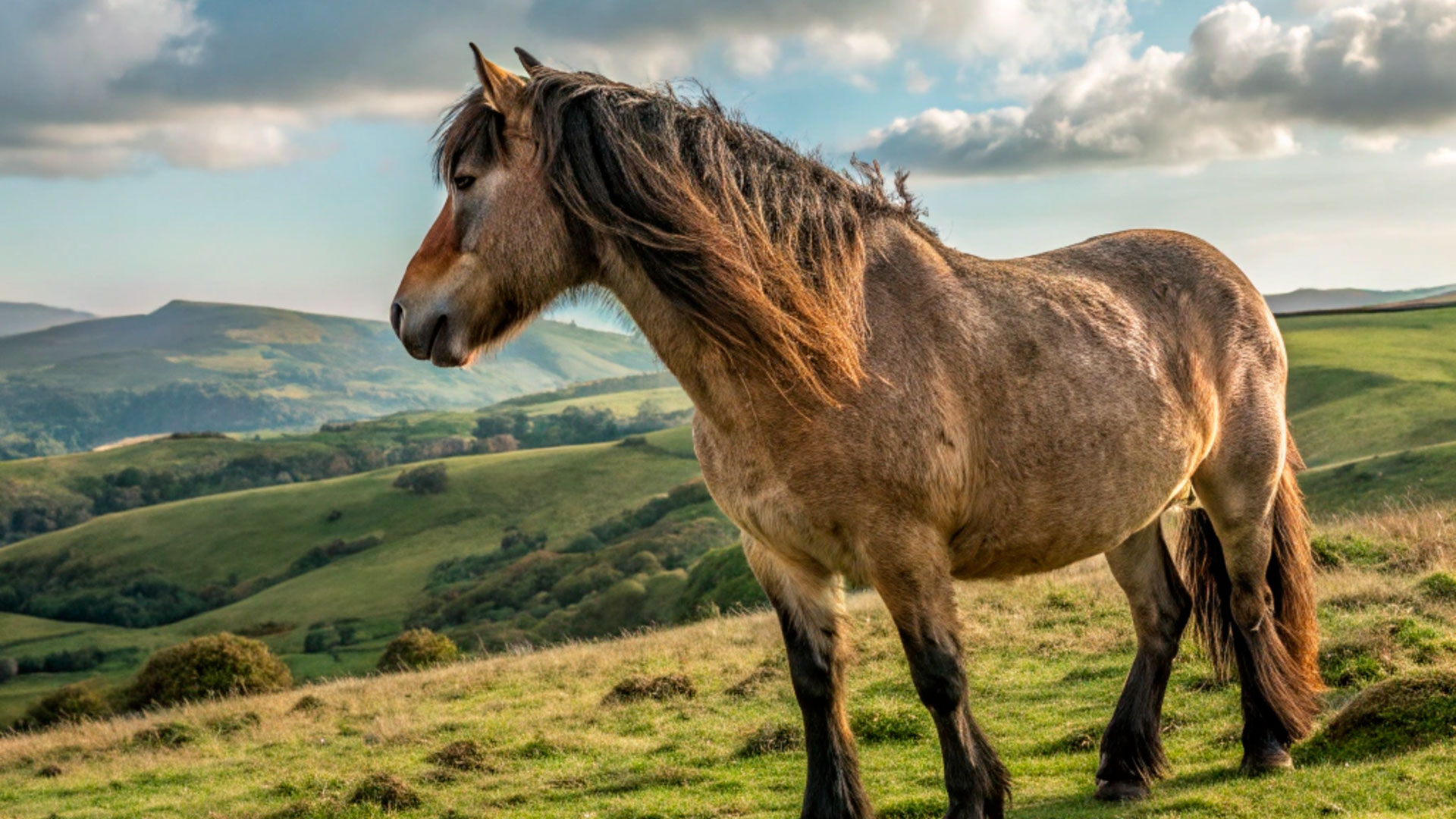
How horses sleep: positions and phases of sleep
Unlike humans, horses do not sleep in the same way, which raises questions about their rest and how they manage to stay energetic and alert. In this article, we will explore in depth the intriguing world of equine sleep and unveil the patterns and peculiarities of their rest.
In what position do horses sleep?
It is very curious that these animals are one of the only ones that can sleep both standing and lying down. Normally when a horse sleeps standing up, it is not as deep and relaxed as when it sleeps lying down. However, due to the little sleep they need, it is true that most of the time they sleep standing up.
With three hours, it would be more than enough, moreover, it is probable that these 3 hours are not even consecutive. When the animal is standing up, it seems that it is not sleeping, but we can check it because the hind bales move unconsciously a little.
Due to the natural instinct of horses, it is normal for them to sleep standing up, since these animals are predators and their nature is to be constantly alert.
In addition, another issue is that due to physiology, it is often safer for them to sleep standing up than lying down. Because this could even harm their health, due to poor blood circulation or bad posture that could damage the knees and ligaments of their legs.
When a horse is totally relaxed and confident, the horse proceeds to lie down and achieves a deeper sleep.
Defining how horses sleep depends on many factors, but normally they sleep with their legs under their bodies and with their neck and head resting on the ground. Also, as in the case of other animals, when it is winter or very cold, they tend to curl up more.
As well as when they rest standing up, when they are in a deeper phase of rest we can see a minimum movement in the paws, unconsciously.
Resting place
Straw is usually the most commonly used material, although it is not always ideal, since straw is not recommended for horses with respiratory or digestive diseases or difficulties. In this case, it would be better to use a material that is not edible.
On the other hand, stables are not always the best option. A priori, they seem the most advisable for the rest of our equine, however, horses are herd animals and rest better surrounded by other animals as they are more confident in case there is any alert situation and another of them is awake and aware of any risk situation.
It is also important that the space where it rests is adequate, as for example in the stables.
The ideal size of a stable for a medium-large horse would be 3.5 x 3m, and with a height of more than 2m.
We recommend that it should have an adequate temperature, a middle ground between cold and heat. This stable should not be located in environments where there is a lot of noise or visual elements that could distract our horse and of course it should have drinking and feeding troughs with the necessary for their welfare.
Phases of sleep in horses
Numbness (Phase 1)
This is the first phase and lasts a few minutes. It depends on the depth of sleep, in this case, it would be a very light sleep. Vital signs and metabolism decrease, but there is still muscular activity. The slightest noise could wake you up.
Light sleep (Stage 2)
In this case, it is a little deeper than the previous one. The brain activity and vital signs continue to lighten. But as in phase 1, you may be easily awakened by any alarm signal.
Delta sleep (Phase 3)
Its name comes from the delta waves that are related to deep sleep. The muscles are almost completely relaxed. It is difficult to wake the animal and it does not move.
Deep sleep (Stage 4)
This is the deepest stage of sleep as the name suggests. It is REM sleep, which represents 25% of the sleep cycle and occurs after many minutes of sleep. In this phase the heart rate is high while the respiratory rate is decreasing. It is ideal for saving and recovering energy.
In short, you now have knowledge about how horses sleep and the sleep phases they go through when they sleep. This will give you a better perspective to understand their habits and needs and will help you to offer them better health conditions, since rest is key.












_v2.svg)
_v2.svg)









_v2.svg)


